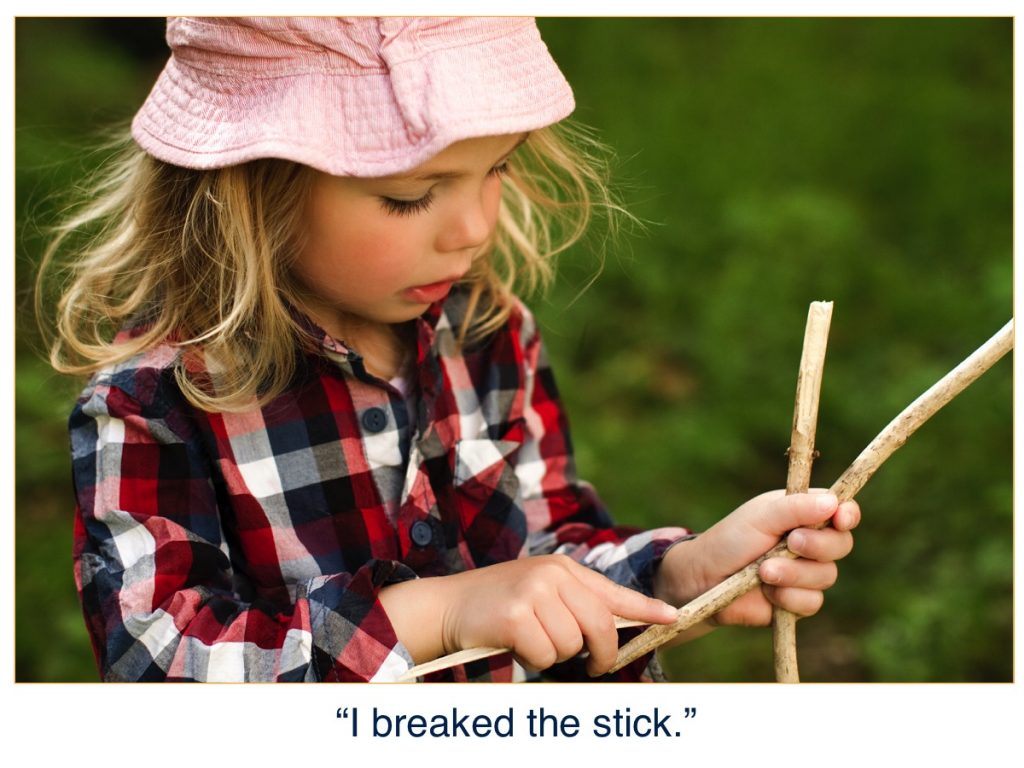
During the process of learning grammatical rules, children sometimes make mistakes. A child might say, “I breaked the stick.” This child knows the English rule for simple past is to add –ed to the end of the word. For example, the simple past form of “walk” is “walked.” The simple past form of “laugh” is “laughed.” What the child doesn’t know is that the simple past form of “break” does not follow this rule. The past form of “break” is “broke.” Such errors are clear evidence that the child is making progress in grammar. A caregiver can support the child’s language development by providing the correct form of the verb. The caregiver can say, “Oh really, you broke the stick?” After the child hears the correct form of the verb a few times, she will soon start to produce it herself.
By applying the rules of grammar to words that they know, children produce sentences that they have never heard before. They are able to express an infinite number of ideas and thoughts.
-
- Back-and-forth or contingent interactions
- exchanges where a caregiver times her responses to a child’s behavior
- Canonical babbling
- producing the same consonant and vowel over and over, such as dadada
- Infant-directed speech
- a special tone and style of speech used to talk to young children. It’s also called parentese
- Joint attention
- shared attention between social partners to an object or event
- Overextension
- using a word to describe more object categories than it actually represents
- Underextension
- failing to extend a word to other objects in the same category
- Vocabulary spurt
- rapid growth in word learning